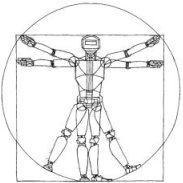Robotics: Science and Systems X
Learning to locate from demonstrated searches
Paul Vernaza, Anthony StentzAbstract:
We consider the problem of learning to locate targets from demonstrated searches. In this concept, a human demonstrates tours of environments that are assumed to minimize the humanâs expected time to locate the target, given the personâs latent prior over potential target locations. The latent prior is then learned as a function of environmental features, enabling a robot to search novel environments in a way that would be deemed efficient by the teacher. We present novel approaches to solve both the inference problem of planning an expected- time-optimal tour given a prior and the learning problem of deducing the prior from observed tours. Our learning algorithm is inspired by and similar to maximum margin planning (MMP), although it differs in key ways. On the inference side, we advance the state-of-the-art by proposing a novel graph-based search method incorporating heuristics obtained via efficiently- solved relaxations of the problem. An application to a home assistant scenario is discussed, and experimental results are given validating our methods in this domain.
Bibtex:
@INPROCEEDINGS{Vernaza-RSS-14,
AUTHOR = {Paul Vernaza AND Anthony Stentz},
TITLE = {Learning to locate from demonstrated searches},
BOOKTITLE = {Proceedings of Robotics: Science and Systems},
YEAR = {2014},
ADDRESS = {Berkeley, USA},
MONTH = {July},
DOI = {10.15607/RSS.2014.X.035}
}
